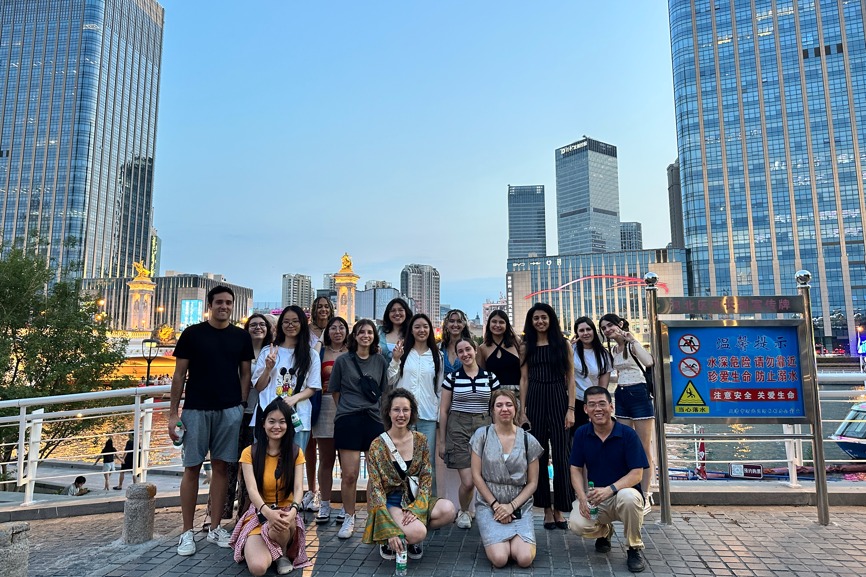Incense brings sweet smell of success


Fragrance-filled smoke permeates the air as you approach a village in the middle of a valley in the Tibet autonomous region.
The village, Thonda, which is in the Thonba township of Nyemo county and is alongside the Yarlung Zangpo River, is renowned for its 1,300-year history of incense production.
Most families in the village are somehow involved in the production and sale of incense. The village has two companies and one cooperative engaged in the trade.
The village, which has a population of around 1,100, also has a close connection with the Thonchu, a stream that runs through it. Locals have put mills in the middle of the stream for grounding pieces from the trunks of juniper trees into powder, an essential ingredient in the making of incense.
According to local legend, Thonmi Sambodha - a minister of Tibetan King Songtsen Gampo in the early seventh century, and who is regarded as the inventor of the Tibetan script and a pioneer of Tibetan incense production - drove all the living creatures from the Thonchu stream and into the Yarlung Zongpo River, and then encouraged the locals to make incense.
That, according to legend, is how incense production replaced fishing as an occupation in the village. Locals believed the setting up of mills in a stream with no living creatures conformed with the principle of nonviolence.
Sonam Norbu, a 72-year-old villager, said he has spent a lifetime making incense. He picked up the skills starting at the age of 10. He said his father "was respected by all villagers as an outstanding incense producer. I learned the skills as part of our tradition."
Sonam, who mainly helps to collect materials from the high mountains, has imparted his skills to family members. "My son has spent some 20 years and my daughter-in-law 13 years in the business," he said. "The tradition will pass on to the next generation. I am very proud of them."
Like most people in the village, Sonam and his family do not get much income from farming and herding. But incense production brought 30,000 yuan ($4,190) in income to the family last year.
Earlier, the villagers had to travel all the way to Lhasa, the regional capital, which is about 150 kilometers away, as well as to other provinces, to sell the incense.
But now, Sonam said, "Thanks to the overall social development, our village is quite well-known. We also receive orders at our doorstep."
Chamba Trinley, 20, a fellow villager, is also involved in the incense trade. "I am engaged in incense production individually as well as through the cooperative," he said, adding that 35 families are part of the cooperative, which has "helped to broaden our market".
"Companies from Lhasa and other provinces purchase the products from our cooperative," said Chamba. This year, his cooperative received an order worth 1 million yuan from a company in Lhasa.
- 1 dead, 13 missing after midsize bus goes missing in north China
- Five dead in landslide in Southwest China
- Nation boosts global AI governance
- Former nuclear base keeps pioneering spirit alive
- China activates emergency response for flood control in Beijing
- China expands low-orbit internet network with new launch




































